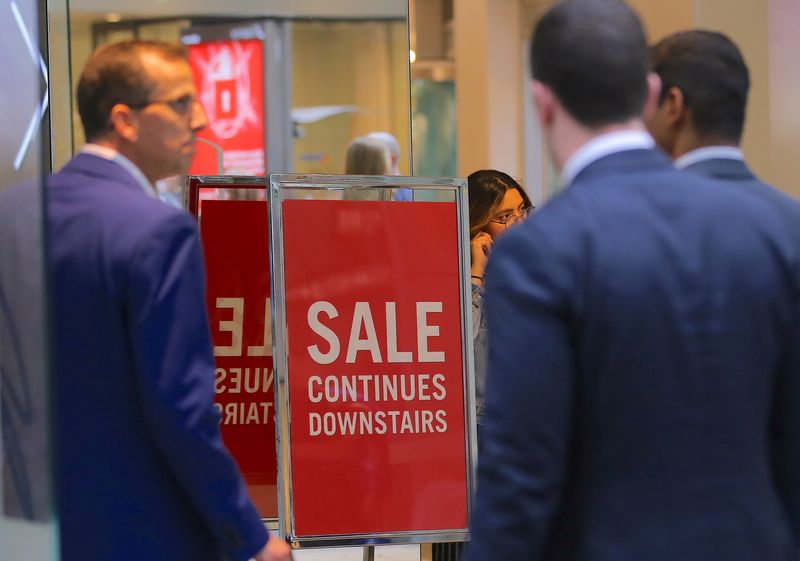By Wayne Cole
SYDNEY (Reuters) - Australian retail sales were surprisingly strong in January as shoppers weathered a surge in Omicron cases with aplomb, suggesting the economy maintained considerable momentum into the new year.
Data from the Australian Bureau of Statistics out on Monday showed retail sales climbed 1.8% in January to A$32.5 billion ($23.3 billion), the second highest level on record and easily beating forecasts of a 0.4% gain.
That followed a 4.4% drop in December, which was distorted by the popularity of online sales that had pulled spending into November.
Weekly figures from banks on card spending show activity was been quick to revive once coronavirus cases began to tail off in mid-January and is now running well above the levels of a year ago.
"With new virus cases now only a quarter of their mid-January peak, AppleMaps routing requests are now well above their 2020 levels and the number of visitors at retail & recreation facilities has rebounded, too," said Marcel Thieliant, a senior economist at Capital Economics.
The Russian invasion of Ukraine and the resulting spike in commodity prices has added a fresh layer of uncertainty to the outlook, though so far the impact on Australia has been minor.
"Australia's trading relationship with Russia and Ukraine is negligible," said Gareth Aird, head of Australian economics at CBA. "It is our expectation the economy will largely be insulated provided the major military powers in Europe and the U.S. do not fight Russia in Ukraine or elsewhere."
Higher petrol prices could act as a tax on consumers, while also adding to inflationary pressure, making policy more difficult for the Reserve Bank of Australia (RBA).
So far, the central bank has said a first rate rise could come later this year if the economy continues to improve, though markets are pricing in a hike to 0.25% as early as July.
The central bank holds its March policy meeting on Tuesday and is considered certain to keep rates at 0.1%.[AU/INT]
Markets will be keen to see its reaction to the sudden bout of geopolitical uncertainty and to recent data showing wages only picked up modestly in the fourth quarter of last year.
Other data out on Monday showed households continued to borrow heavily with mortgage credit running at an annual pace of 7.7% in January amid a booming housing market.

Figures for gross domestic product (GDP) for the December quarter are due on Wednesday and are expected to show economic growth rebounded by a strong 3% as an easing in coronavirus lockdowns unleashed a wave of pent up consumer spending.
($1 = 1.3924 Australian dollars)